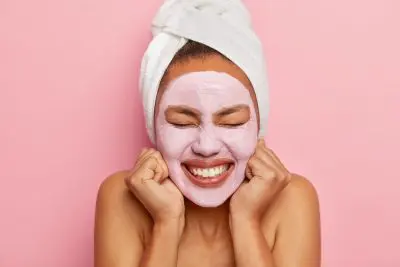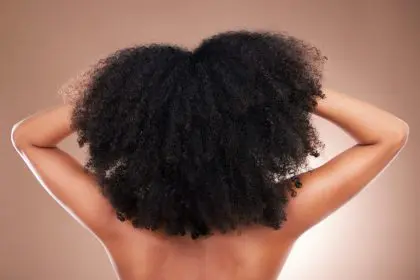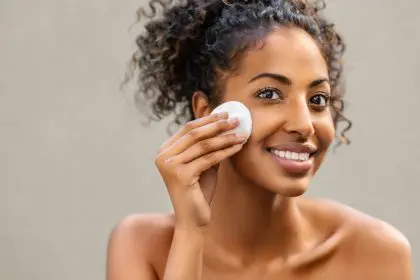You’re standing in front of your bathroom mirror, brush in hand, mindlessly running it through your hair before rushing out the door. It’s such a mundane part of your daily routine that you’ve probably never stopped to consider what’s actually happening beyond simply detangling your locks. But what if this simple act could be transformed into something far more powerful?
As it turns out, the way you brush your hair might be affecting your entire nervous system – and not just because that stubborn knot is driving you crazy.
The surprising connection between your scalp and stress
Your scalp is home to thousands of nerve endings that connect directly to your nervous system. When you brush your hair slowly and deliberately, you’re essentially giving yourself a mini scalp massage, stimulating these nerve endings in a rhythmic pattern that your brain finds deeply satisfying.
Think about it – there’s a reason why having someone else wash and brush your hair at a salon feels so incredibly relaxing. That gentle, consistent pressure activates your parasympathetic nervous system – the part responsible for your “rest and digest” response, which is basically the opposite of your stress-inducing “fight or flight” mode.
What happens when you slow down your brushing
When you rush through hair brushing, yanking through tangles and barely making contact with your scalp, you’re missing out on a golden opportunity for nervous system regulation. But when you slow down and approach it mindfully, something remarkable happens:
Your breathing naturally slows down and deepens as you fall into the rhythm of brushing. Your heart rate might decrease slightly. Your muscles begin to release tension, especially in your neck and shoulders. And perhaps most importantly, your mind stops racing through your endless to-do list and focuses on the present moment.
It’s like meditation, but without having to sit cross-legged on the floor wondering if you’re “doing it right.”
The science behind the scalp sensation
The calming effect of slow hair brushing isn’t just anecdotal – it’s backed by our understanding of human physiology. When pressure receptors in your scalp are activated through gentle brushing, they send signals to your brain that trigger a cascade of relaxation responses throughout your body.
Your brain releases feel-good chemicals like serotonin and dopamine, while simultaneously reducing the production of cortisol, that notorious stress hormone that seems determined to ruin your day. It’s similar to what happens during other forms of touch therapy, just more accessible since you can do it yourself.
Unexpected benefits of mindful brushing
While stress reduction might be reason enough to slow down your brushing routine, the benefits don’t stop there. Gentle, deliberate brushing can also:
Improve blood circulation to your hair follicles, potentially supporting healthier hair growth. Distribute your scalp’s natural oils throughout your hair, enhancing shine and reducing the need for products. Help you become more aware of changes in your scalp and hair that might indicate health issues. Serve as a natural pain reliever for headaches, particularly tension headaches that originate at the base of your skull.
How to brush for maximum nervous system benefits
Ready to transform your hair brushing routine from mundane to magnificent? Here’s how to get started:
Choose the right tools for the job. The type of brush you use matters more than you might think. Natural bristle brushes are often recommended for their ability to distribute oils and gently massage the scalp without causing damage. For thicker or curlier hair types, a wide-tooth comb or specialized detangling brush might be more appropriate. Whatever you choose, make sure it feels good against your scalp – uncomfortable brushing defeats the whole purpose of this practice.
Create a calm environment. If possible, brush your hair in a quiet space where you won’t be interrupted. This could be before bed when the house is quiet, or first thing in the morning before the chaos of the day begins. Some people even find that brushing hair near an open window with natural sounds adds another layer of relaxation.
Start with the right technique. Begin at the ends of your hair and work your way up to avoid unnecessary pulling. Once the tangles are out, shift your focus to your scalp. Use long, deliberate strokes from your hairline to the nape of your neck, applying gentle but firm pressure. Try varying the pressure slightly to see what feels best for you.
Breathe with your brushing. Synchronize your breathing with your brush strokes. Try inhaling for three strokes and exhaling for three strokes, or whatever pattern feels natural to you. This simple addition turns hair brushing into a true mindfulness practice.
Make it a daily ritual.
Consistency is key. Even just two minutes of slow, mindful brushing each day can make a difference in how your nervous system responds to stress throughout the day. Many people find that morning brushing energizes while evening brushing relaxes – experiment to discover what works for your body.
When hair brushing becomes self-care
In our constantly connected world, finding moments of genuine calm can feel like searching for a needle in a haystack. The beauty of using hair brushing as a nervous system regulator is that it doesn’t require adding anything new to your already packed schedule – it just asks you to approach something you’re already doing with more awareness and intention.
And unlike expensive spa treatments or complicated wellness routines, this form of self-care is accessible to almost everyone. It doesn’t matter if your hair is long or short, straight or curly, thick or thin – your scalp still contains those same nerve endings waiting to be activated.
So the next time you reach for your hairbrush, consider slowing down. Those extra minutes might just be the reset your nervous system has been craving all along. Your hair will thank you, your scalp will thank you, and most importantly, your frazzled nervous system will thank you – possibly with the best night’s sleep you’ve had in weeks.


















